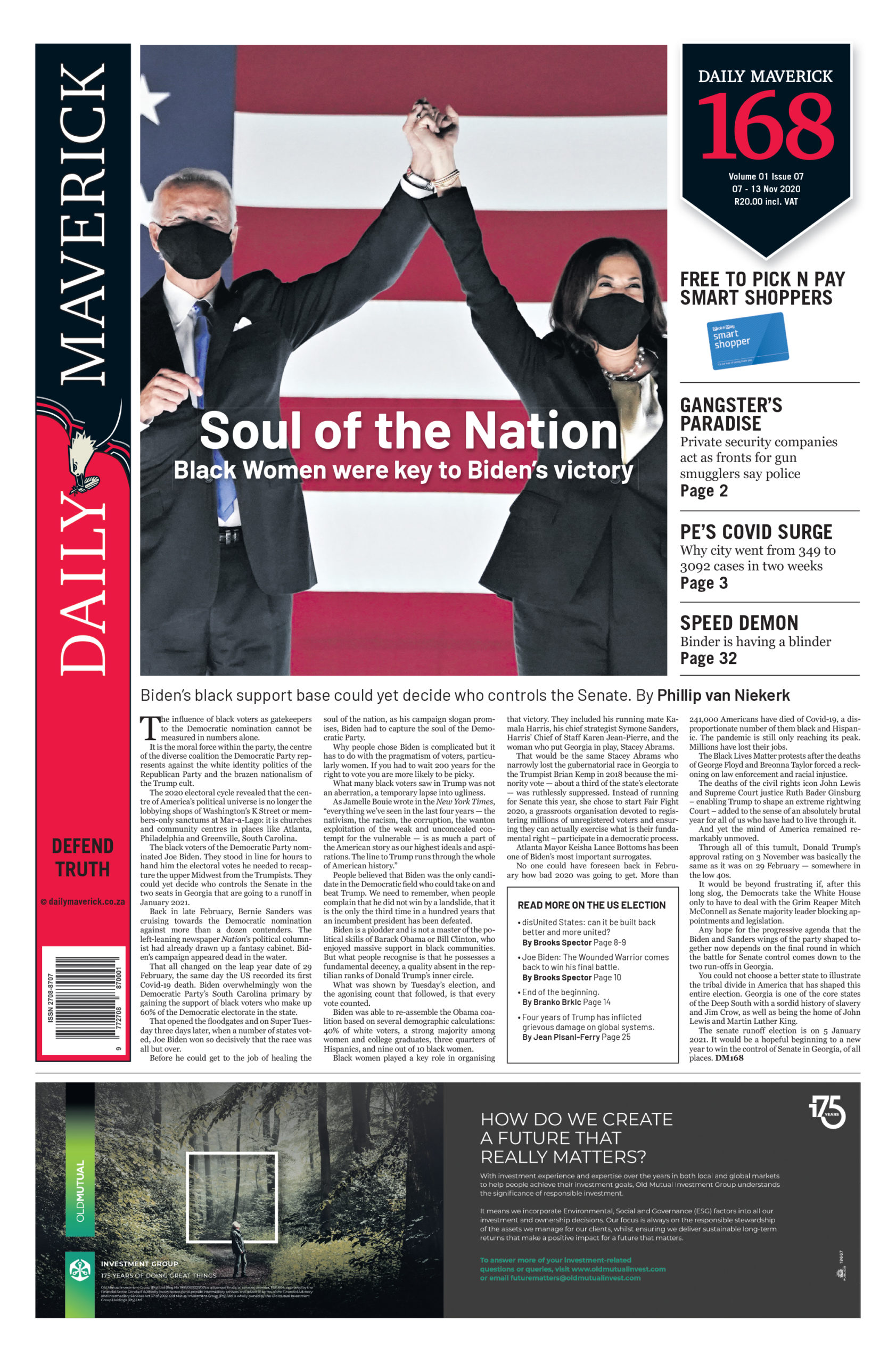The US elections have always been a source of curiosity and interest for global audiences, perhaps more than for the population of the nation’s 50 states. But the 2020 presidential elections seem to have piqued the interest of Americans alike, so much so that they turned out in record numbers to elect the country’s Commander-in-Chief. High voter turnouts are good for a democracy as this solidifies the legitimacy of any government.
The lead-up to the 2020 presidential election laid the foundation for what was to become a hard-fought contest between President Donald Trump and Democratic Party candidate Joe Biden.
The shouting match that was passed off as a first presidential debate between the candidates had already prepared us for what was to come.
But no one could have imagined the nail-biting moments after election day as observers and interested parties awaited the results in key swing states. Add to that the long wait necessitated by the record high number of mail-in votes that totalled almost 100 million. These are American voters who exercised their right to vote without having to stand in a physical line in the middle of a pandemic.
At one point Biden – probably sensing that his supporters had become discouraged by Trump’s lead in strategic states – urged his supporters to “keep the faith”.
Trump, despite showing an early leads in key constituencies, seemed unnerved. In a bizarre press conference at the White House he declared himself a winner and threatened to approach the country’s Supreme Court to stop the counting of the mail-in ballots. How democratic.
Trump is a perfect example that, despite its well-meaning principles, democracy still has its flaws, whether in South Africa or in the US. But it is by far the one political system that truly empowers populations to have a direct say in who and how they are governed.
Despite being an advanced democracy, American presidents are not elected by popular vote. Having won the popular vote by over 3 million votes, Hillary Clinton went on to lose the 2016 presidential election and could only garner 227 electoral college votes against Trump’s 304. One could argue that such a system undermines the will of the people. It is a sound argument if one applies the schematic majority rule principle.
The electoral college system adopts a winner-takes-all approach where, in the majority of the states, the winner gets all the votes allocated to their electors.
For instance, Trump won the swing state of Michigan by a whisker in 2016. He beat Hillary Clinton by a mere 0.23% margin to gain all 16 electoral college votes allocated to the state. The 47% of the electorate who voted for Clinton in Michigan could not influence the presidential election.
Obviously the system has been criticised by some who have argued that it should be overhauled to empower voters more. But even if they changed the system, which seems unlikely given the number of failed previous attempts, no political system is without fault.
Here at home we had our own Trumpesque moment when the crooner from Nkandla occupied the highest office in the land, situated at the Union Buildings.
Sometimes we lament the limitations of democracy when the outcomes offend our sensibilities. The opposition benches in Parliament, led by the DA, constantly crowed about the “undemocratic” process by which an ANC president is elected.
They would point to the fact that there were only 4,000 delegates – in a country of 58 million people – who elected Jacob Zuma at Polokwane. By virtue of being ANC president he became the president of the country as a result of our proportional representation electoral system.
But that was a flawed argument as the voters who chose the ANC to be in government did so knowing that Zuma would become president. It’s the same with the Americans who came out in 2016 and voted for Trump.
Sometimes we lament the state of our young democracy in South Africa and forget the safeguards that we have in place to ensure that our laws are measured up against one of the best constitutions in the world. The recent Constitutional Court ruling in the New Nation Movement matter, in June 2020, is a case in point. The ruling found the Electoral Act to be unconstitutional and paved the way for independent candidates to stand for future provincial and national elections.
It is therefore not surprising to hear Zuma’s son Duduzane boldly declare, this week, that he intends contesting the national elections in 2024. He declined to say whether he would do so under the banner of the ANC. It is clear that the younger Zuma – who is accused of working in cahoots with the notorious Gupta family to loot the country’s coffers – sees himself benefiting from that very ruling.
It is a progressive judgment, one that allows constituencies to directly elect their preferred representatives to the provincial and national legislatures. But at the same time it allows for undesirables like Duduzane – who refuses to take responsibility for his part in aiding State Capture – to see themselves “on the ballot box in 2024”, as he boldly declared during an interview with 24-hour news station Newzroom Afrika.
Hopefully law enforcement agencies will move with speed with their investigation into State Capture so that such a day never dawns. They and the courts are our hope in defending our democracy from further capture.
We may be living in a country bedevilled by a myriad problems, a weak government and rampant corruption, but overall ours is a stable democracy with strong institutions as its pillars. Let us never forget that. DM168
Sibusiso Ngalwa is Political Editor of Newzroom Afrika and chair of SANEF.


















 Become an Insider
Become an Insider
Comments - Please login in order to comment.